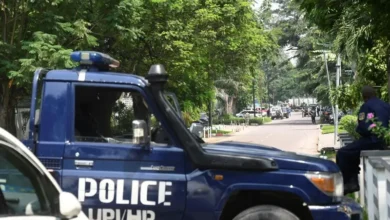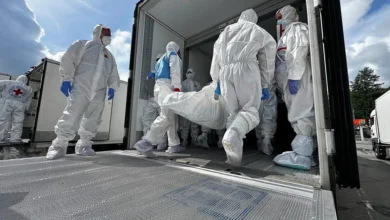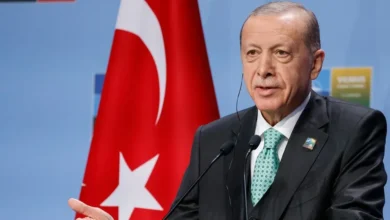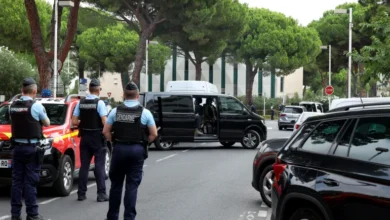France can and must do more than recognising Palestinian statehood
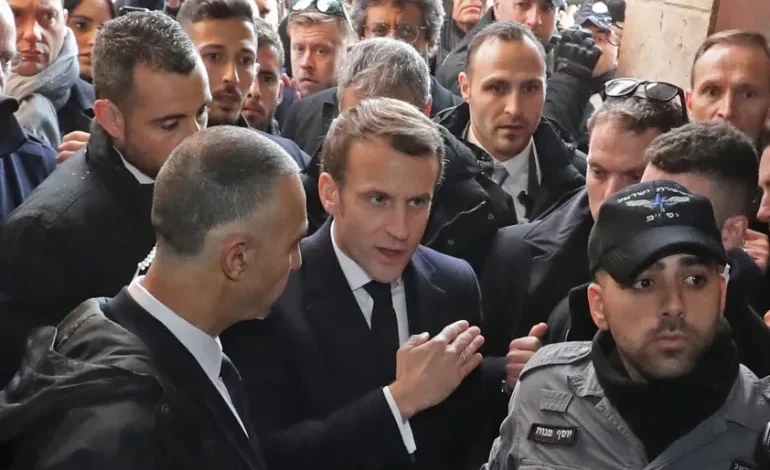
On Wednesday, French President Emmanuel Macron announced that France is preparing to recognise Palestinian statehood within a few months. If it proceeds, Paris would become the 12th European Union member to officially accept the existence of the Palestinian state. Last year, Slovenia, Ireland and Spain did so, bringing the total number of EU states recognising Palestine to 11 out of 27.
The French recognition would be a significant step in the right direction, especially if it affirms Palestine’s 1967 borders and East Jerusalem as its capital, respecting international law provisions and the international consensus.This could move other European countries to do the same, including Luxembourg and Portugal and could put significant pressure on others, notably the United Kingdom, Switzerland and Belgium.
However, France is at risk of turning its recognition of Palestine into another empty gesture to save face amid growing opposition among Europeans to the Israeli occupation of Palestine and the genocide in Gaza.Under Macron, France has been far from meeting its legal and political obligations towards Palestine, turning a blind eye to Israel’s horrific crimes and violations. In this context, the French announcement can be seen as a diplomatic move that is too little, too late.
Until recently, Western powers largely conditioned the recognition of Palestine on the outcome of peace negotiations, which in reality meant giving Israel a veto right over Palestinian statehood. This is because Israel does not want negotiations to produce a solution – whether a two-state one along the 1967 borders or a one-state one in which Palestinians and Israelis have equal rights.
Israeli law opposes recognition of Palestine and the fulfilment of the Palestinian right to self-determination, but Western powers have continued to act as if this was not the case.
Israel was given this leverage over Palestine despite the fact that its own statehood was based on United Nations Resolution 181, which called for the creation of two states, and its membership in the UN was conditioned on the implementation of Resolutions 181 and 194 – the latter pertaining to the right of return for Palestinian refugees. Successive Israeli governments have systematically violated both resolutions as well as many others without facing any consequences from their Western allies.
Now that the Israeli government has finally made clear that its plan is ethnic cleansing and annexation of all of Palestine, some Western countries seem to be reconsidering their stance and are opting to recognise Palestinian statehood.While recognition is important, it cannot be the only step a country such as France should take to implement the Palestinian right to self-determination. France is a former colonial power in the Middle East, a permanent member of the UN Security Council, a leading member of the EU, one of Israel’s most important trading partners and an important donor for Palestine.El Salvador President Nayib Bukele’s office also posted images of the meeting of Van Hollen and Garcia, saying mockingly, “Now that he’s been confirmed healthy, he gets the honor of staying in El Salvador’s custody.”
The post ended with emojis of the US and El Salvador flags, with a handshake emoji between them.Al Jazeera’s Shihab Rattansi, reporting from Washington, DC, said Garcia’s deportation is attracting a lot of attention in the US because of what is perceived as “a lack of due process”, adding that a judge had specifically ordered to hold off on the deportation.
On Thursday, a US Appeals Court said it “should be shocking” that the US government is claiming it cannot do anything to free Garcia, after Washington resisted a Supreme Court order to bring him back to the US.
“The government is asserting a right to stash away residents of this country in foreign prisons without the semblance of due process that is the foundation of our constitutional order,” the court said.
In a meeting earlier this week at the White House, US President Donald Trump and his Salvadoran counterpart, Bukele, declared they have no basis to return Garcia to the US.
Garcia’s wife, Jennifer Vasquez Sura, said in a statement released by an advocacy group that she had “so many questions, hopes, and fears”.
Partisan flashpoint
Van Hollen’s trip has become a partisan flashpoint in the US, with the opposition Democrats calling it a cruel consequence of Trump’s disregard for the courts.
Republicans have criticised Democrats for defending the prisoner and argued that his deportation is part of a larger effort to reduce crime.

